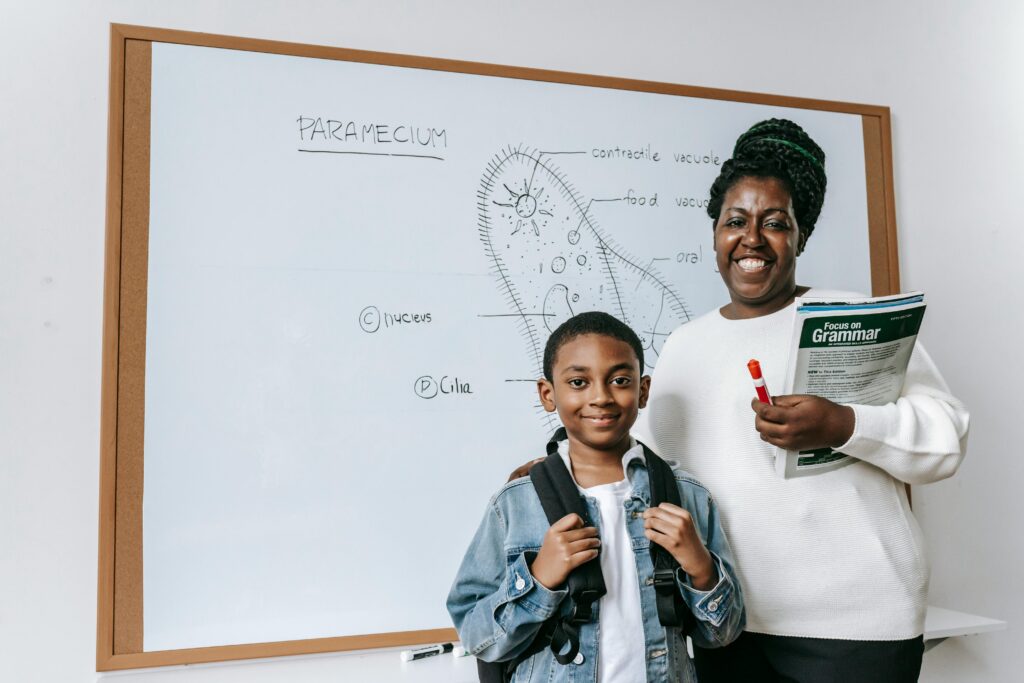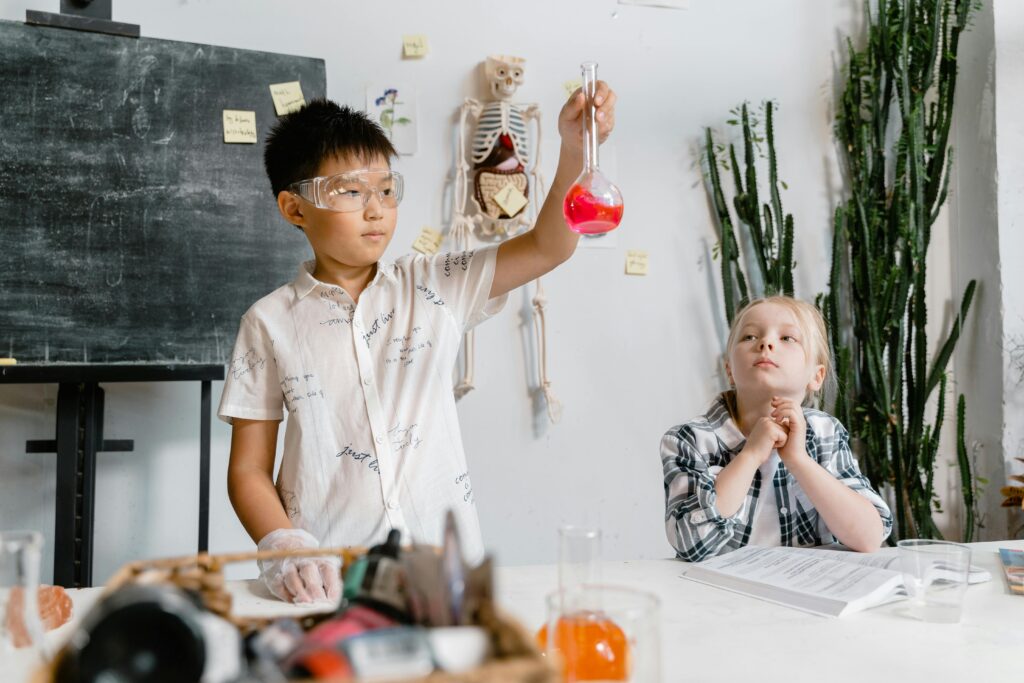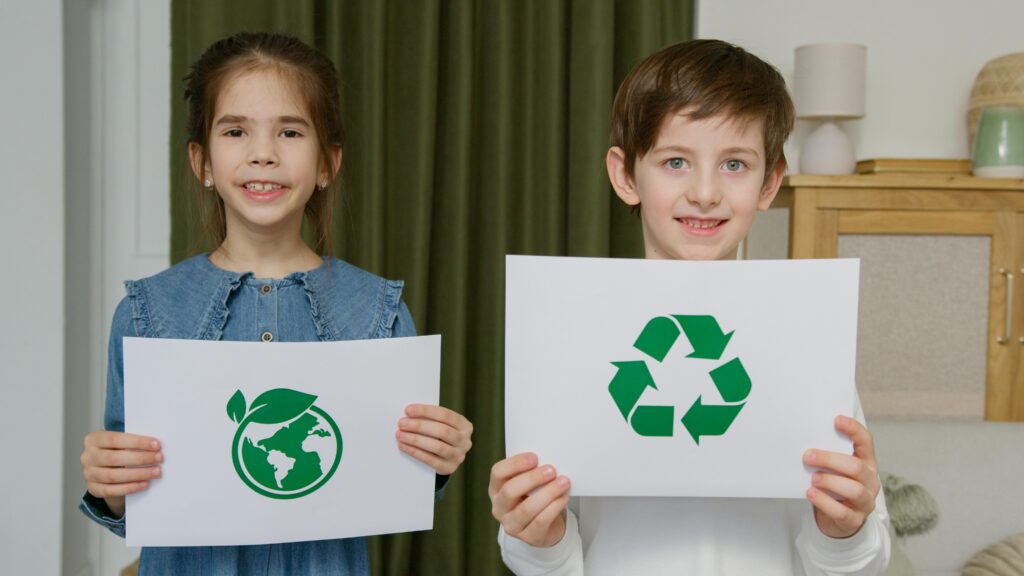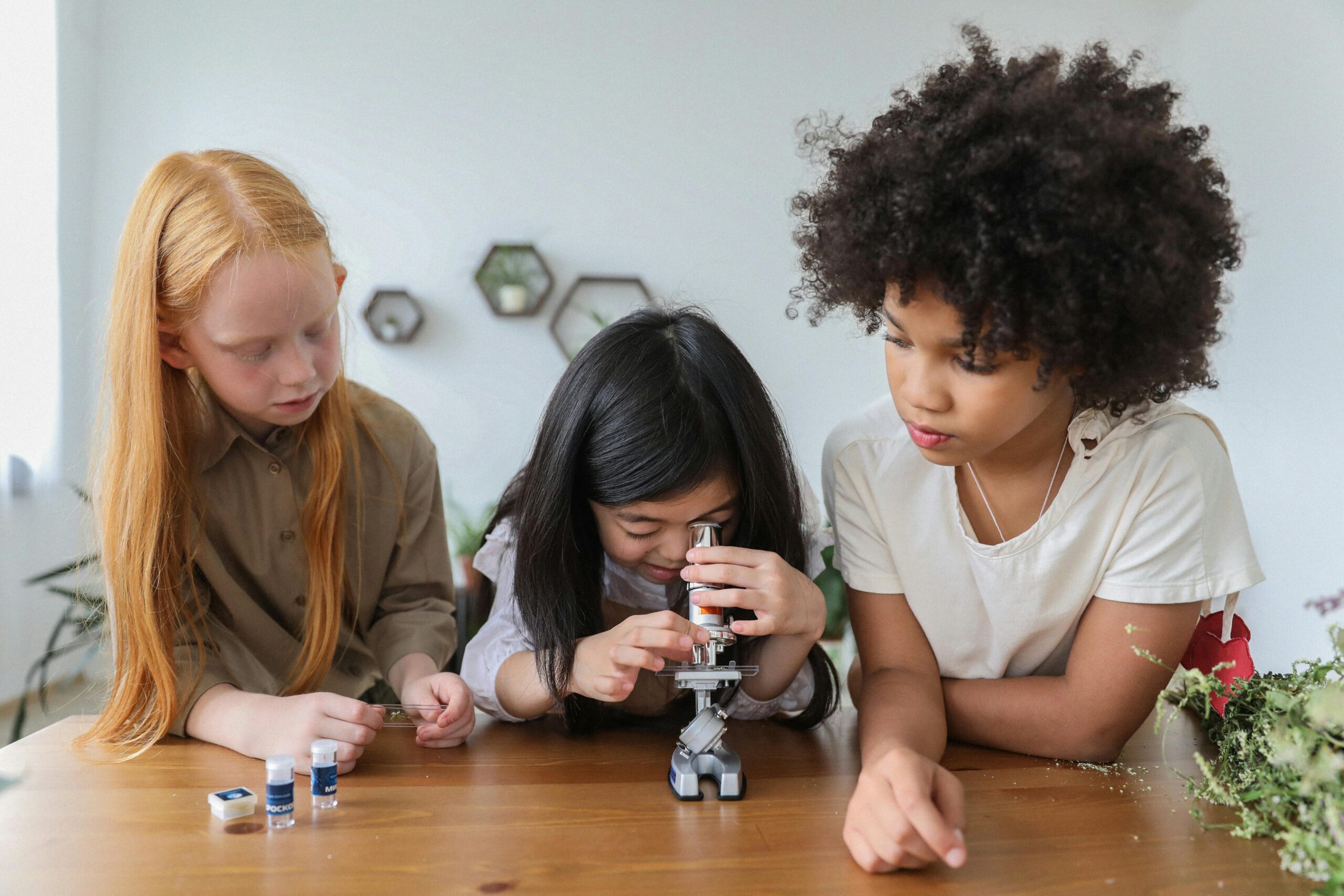Interviews with Winning Students: Insights and Inspiration
Talking to students who have won science competitions is a great way to inspire your child. These interviews provide insights into their experiences, challenges, and triumphs. By sharing their success stories, you can help your child understand what it takes to succeed and motivate them to participate in science competitions. Here are some key takeaways from interviews with winning students.
Discovering Their Passion
Many winning students discovered their passion for science at a young age. They often talk about a particular moment or experience that sparked their interest. For example, Sarah, a recent winner, shared, “I fell in love with astronomy after a school trip to the planetarium.” Encouraging your child to explore different fields of science can help them find their passion. Whether it’s a visit to a science museum or a fun experiment at home, these experiences can be the catalyst for a lifelong interest in science.
Embracing Curiosity
Curiosity drives many winning students to delve deeper into their projects. They ask questions, seek answers, and are not afraid to experiment. Jason, another winner, said, “I always wondered how things worked, so I started taking apart old electronics to see inside.” Encourage your child to be curious and ask questions. Support their desire to learn more about the world around them. This curiosity will fuel their scientific exploration and lead to exciting discoveries.
Overcoming Challenges
Winning students often face challenges and setbacks during their projects. They share stories of experiments that didn’t work as planned or difficulties in understanding complex concepts. Emily, a science fair champion, revealed, “My first experiment failed, but I didn’t give up. I tried a different approach, and it worked!” Teaching your child to view setbacks as learning opportunities is crucial. Encourage them to persevere and find creative solutions to problems. This resilience will be invaluable in both science competitions and life.
The Importance of Mentorship
Mentorship plays a significant role in the success of many winning students. They often mention teachers, parents, or other mentors who provided guidance and support. Daniel, a robotics competition winner, explained, “My science teacher helped me refine my project and gave me valuable feedback.” Encourage your child to seek out mentors who can offer advice and support. This could be a teacher, a family member, or even an older student who has experience in science competitions. A mentor can provide valuable insights and help your child navigate their scientific journey.
Balancing Time
Winning students also talk about the importance of time management. Balancing schoolwork, extracurricular activities, and science projects can be challenging. Jessica, who won a regional science fair, shared, “I made a schedule and stuck to it. That helped me manage my time effectively.” Help your child create a balanced schedule that allows time for their science project without neglecting other responsibilities. Time management skills will help them stay organized and reduce stress.
Teamwork and Collaboration
Many science competitions allow for team projects, and winning students often emphasize the value of teamwork. They talk about the benefits of collaborating with peers, sharing ideas, and dividing tasks. Alex, who participated in a team project, said, “Working with my friends made the project more fun and productive.” Encourage your child to consider team projects and teach them the importance of collaboration. Working with others can enhance their project and provide a valuable learning experience.
Preparing for Presentations
Presenting their projects is a crucial part of science competitions. Winning students highlight the importance of preparing and practicing their presentations. Maria, a science fair winner, stated, “I practiced my presentation several times and asked for feedback from my family.” Help your child practice their presentation skills. Encourage them to present to family members or friends and provide constructive feedback. Good presentation skills will boost their confidence and improve their chances of success.
Learning from Others
Interviews with winning students also reveal that they often learn from observing other projects. Attending science fairs and competitions allows them to see what others are doing and get inspired. Liam, a frequent competitor, noted, “Seeing other projects gave me new ideas and motivated me to improve my own.” Encourage your child to attend science fairs and observe other projects. This exposure can spark new ideas and inspire them to aim higher.
The Role of Family Support
Family support is a common theme in the stories of winning students. They mention how their families encouraged them, helped gather materials, and cheered them on. Olivia, who won a national science competition, said, “My parents were my biggest supporters. They helped me stay motivated.” As a parent, your support and encouragement are crucial. Show interest in your child’s project, help them with research, and celebrate their achievements. Your involvement will make a significant difference in their experience.
The Joy of Learning
Above all, winning students talk about the joy of learning and discovering new things. They enjoy the process of exploration and the satisfaction of finding answers. Ethan, a science fair champion, summed it up by saying, “Winning was great, but the best part was learning something new.” Encourage your child to focus on the joy of learning rather than just the outcome. This mindset will make their experience more enjoyable and fulfilling.

Teacher and Mentor Perspectives: Guiding Young Scientists
Teachers and mentors play a vital role in helping students succeed in science competitions. Their insights and experiences can provide valuable guidance for your child. In this section, we explore perspectives from teachers and mentors who have guided many young scientists to victory. Let’s see what they have to say about supporting students in their scientific journey.
Fostering Curiosity and Exploration
One of the most important things teachers and mentors emphasize is fostering curiosity. Mr. Brown, a seasoned science teacher, shares, “Encourage students to ask questions and explore topics they’re passionate about.” By nurturing your child’s natural curiosity, you can help them develop a love for science. Encourage them to explore various scientific fields and support their interests. This exploration can lead to exciting discoveries and innovative projects.
Building Strong Foundations
Teachers often stress the importance of building a strong foundation in scientific concepts. Mrs. Lee, a mentor with years of experience, advises, “Make sure students understand the basics before diving into complex projects.” Helping your child grasp fundamental concepts will enable them to tackle more challenging topics with confidence. You can reinforce these foundations by discussing scientific ideas at home and encouraging practical experiments.
Encouraging Hands-On Learning
Mentors highlight the value of hands-on learning. Dr. Patel, a mentor for robotics competitions, explains, “Hands-on activities make learning more engaging and memorable.” Encourage your child to participate in experiments and projects that require practical application. Whether it’s building a model, conducting an experiment, or coding a program, hands-on learning helps solidify their understanding and keeps them excited about science.
Setting Realistic Goals
Teachers and mentors also talk about the importance of setting realistic goals. Mr. Thompson, a science fair advisor, says, “Help students set achievable goals to keep them motivated.” Break down the project into manageable steps and celebrate small victories along the way. This approach will keep your child motivated and prevent them from feeling overwhelmed.
Providing Constructive Feedback
Constructive feedback is crucial in guiding students to success. Mrs. Adams, a mentor for biology projects, states, “Give feedback that helps students improve without discouraging them.” When your child presents their ideas or project, offer positive and constructive feedback. Focus on their strengths and suggest areas for improvement. This will boost their confidence and encourage them to keep striving for excellence.
Cultivating a Growth Mindset
Mentors emphasize the importance of cultivating a growth mindset. Mr. Garcia, a chemistry teacher, explains, “Encourage students to see challenges as opportunities to learn and grow.” Teach your child that mistakes and setbacks are part of the learning process. By fostering a growth mindset, you help them develop resilience and a positive attitude towards challenges.
The Role of Collaboration
Teachers and mentors often talk about the benefits of collaboration. Ms. Nguyen, who mentors physics projects, shares, “Collaboration brings fresh ideas and diverse perspectives to the project.” Encourage your child to work with peers on science projects. Collaboration teaches them teamwork, communication, and problem-solving skills. It also makes the project more enjoyable and can lead to innovative solutions.
Utilizing Resources
Mentors recommend utilizing available resources to enhance learning. Mr. Wilson, a mentor for environmental science projects, advises, “Make use of online resources, libraries, and community programs.” Help your child find resources that can support their project. This could include books, online tutorials, workshops, or local science clubs. Utilizing these resources can provide additional knowledge and inspiration.
Celebrating Effort and Progress
Teachers and mentors stress the importance of celebrating effort and progress. Mrs. Hernandez, a mentor for astronomy projects, says, “Recognize and celebrate every milestone, no matter how small.” Celebrate your child’s dedication and hard work throughout their project. This positive reinforcement will keep them motivated and excited about their scientific journey.
Encouraging Public Speaking
Public speaking is a crucial skill for science competitions. Mr. Davis, a mentor for engineering projects, explains, “Help students practice presenting their projects confidently.” Encourage your child to practice their presentation skills in front of family or friends. Provide feedback on their delivery and help them improve. Good public speaking skills will boost their confidence and make a strong impression on judges.
Maintaining Balance
Teachers and mentors highlight the importance of maintaining a balance between academics and science projects. Ms. Roberts, a mentor for mathematics competitions, advises, “Ensure students manage their time effectively to avoid burnout.” Help your child create a balanced schedule that allows time for schoolwork, science projects, and relaxation. Maintaining balance will keep them energized and focused.

Overcoming Challenges and Obstacles: Navigating Science Competitions
Science competitions can be both exciting and challenging for students. As parents, you play a crucial role in helping your child overcome obstacles and achieve their goals. In this section, we’ll explore common challenges faced by students and practical ways you can support them. Let’s dive into how you can help your young scientist succeed.
Managing Time Effectively
Time management is a significant challenge for many students. Between schoolwork, extracurricular activities, and science projects, it can be tough to balance everything. Encourage your child to create a schedule. Help them allocate time for research, experiments, and other project tasks. Using tools like planners or apps can make scheduling more manageable and ensure they stay on track.
Dealing with Setbacks
Setbacks are a natural part of any scientific journey. Experiments might fail, or results may not turn out as expected. Remind your child that setbacks are learning opportunities. Dr. Smith, a veteran science teacher, says, “Encourage students to view failures as steps toward success.” Help them analyze what went wrong and brainstorm ways to improve. This approach builds resilience and a positive attitude toward challenges.
Staying Motivated
Maintaining motivation throughout a long project can be difficult. Celebrate small milestones and achievements to keep your child motivated. Mrs. Johnson, a mentor for chemistry projects, advises, “Break the project into smaller tasks and celebrate each completed step.” Recognizing their efforts along the way keeps spirits high and motivation strong. You can reward their progress with fun activities or treats.
Finding Reliable Resources
Locating reliable resources for research can be challenging. Guide your child in finding credible sources. Encourage them to use library databases, trusted websites, and academic journals. Mr. Thompson, a science fair judge, suggests, “Teach students to evaluate sources for credibility and relevance.” By helping them access quality information, you support their project’s accuracy and depth.
Handling Stress
Science competitions can be stressful, especially as deadlines approach. Teach your child stress management techniques. Breathing exercises, short breaks, and physical activities can help reduce stress. Mrs. Lee, a psychologist, recommends, “Encourage students to take regular breaks and engage in relaxing activities.” Keeping a healthy balance between work and relaxation is key to maintaining well-being.
Understanding Complex Concepts
Science projects often involve complex concepts that can be challenging to grasp. Simplify difficult topics by breaking them down into smaller parts. Use analogies and everyday examples to explain. Mr. Patel, a physics teacher, advises, “Relate complex ideas to familiar concepts to make them easier to understand.” This approach makes learning more accessible and enjoyable for your child.
Presenting with Confidence
Public speaking can be daunting for many students. Practice presentations at home to build confidence. Encourage your child to present in front of family or friends. Provide constructive feedback on their delivery and clarity. Ms. Brown, a communication expert, says, “Help students practice speaking clearly and confidently about their projects.” Good presentation skills make a strong impression on judges and audience members.
Working Through Team Conflicts
If your child is part of a team, conflicts may arise. Teach them effective communication and conflict resolution skills. Encourage open discussions and mutual respect among team members. Mr. Garcia, a teamwork coach, advises, “Promote active listening and collaborative problem-solving within the team.” By fostering a positive team environment, you help your child navigate conflicts and work effectively with others.
Accessing Mentorship
Finding the right mentor can be challenging but immensely beneficial. Help your child connect with teachers, local scientists, or online mentors. Mentors provide valuable guidance and expertise. Mrs. Hernandez, a mentor for biology projects, suggests, “Seek mentors who are knowledgeable and supportive.” A good mentor can make a significant difference in your child’s project development.
Balancing Academic Responsibilities
Balancing academic responsibilities with a science project can be tough. Encourage your child to prioritize their tasks and manage their time wisely. Mr. Wilson, an education consultant, advises, “Help students create a balanced schedule that includes study time and project work.” Supporting them in maintaining this balance ensures they don’t fall behind in their schoolwork.
Leveraging Community Support
Community support can provide additional resources and encouragement. Explore local science clubs, workshops, and competitions. Engage with other parents and students who share similar interests. Mrs. Roberts, a community organizer, says, “Join local science groups to access resources and build a support network.” Being part of a community can inspire your child and offer valuable opportunities for growth.

Long-term Benefits of Competing in Science Competitions
Science competitions offer more than just trophies and medals. They provide students with a wealth of long-term benefits. As parents, understanding these advantages can help you encourage your child to participate. Let’s explore the numerous ways these competitions positively impact your child’s future.
Building Critical Thinking Skills
Participating in science competitions enhances critical thinking skills. Students learn to analyze problems, develop hypotheses, and conduct experiments. These activities require thoughtful planning and problem-solving. Mrs. Green, a science teacher, says, “Competitions push students to think deeply and approach challenges creatively.” These critical thinking skills are essential for academic success and beyond.
Enhancing Academic Performance
Science competitions can boost your child’s academic performance. The research and preparation involved improve their knowledge and understanding of scientific concepts. Mr. White, an education consultant, notes, “Students often see an improvement in their grades after participating in science competitions.” This experience makes learning more engaging and reinforces classroom lessons.
Developing Research Skills
Research is a cornerstone of science competitions. Students learn how to gather information from various sources, evaluate its credibility, and synthesize data. Mrs. Blue, a mentor, says, “Effective research skills are valuable for both academic and career success.” Your child will gain a deeper understanding of the scientific method and how to apply it.
Encouraging Lifelong Learning
Science competitions instill a love for learning. They spark curiosity and motivate students to explore new topics. Dr. Black, a scientist and former competitor, shares, “These competitions ignite a passion for discovery that lasts a lifetime.” Encouraging your child to compete fosters a growth mindset and a continuous desire to learn.
Enhancing Communication Skills
Effective communication is vital in science competitions. Students must present their findings clearly and confidently. Practicing presentations and writing reports enhances their communication abilities. Ms. Brown, a public speaking coach, says, “Clear communication is key to success in any field.” These skills are invaluable in both academic and professional settings.
Boosting Confidence
Competing in science competitions can significantly boost your child’s confidence. Presenting their work to judges and peers validates their efforts. Mr. Green, a school counselor, notes, “Success in competitions builds self-esteem and encourages students to take on new challenges.” Confidence gained through competition translates to other areas of life.
Fostering Teamwork
Many science competitions involve team projects. Working with peers teaches collaboration and teamwork. Mrs. Gray, a teamwork coach, says, “Team projects help students develop social skills and learn to work effectively with others.” These experiences prepare your child for future group work in school and their career.
Offering Networking Opportunities
Science competitions provide excellent networking opportunities. Students meet peers with similar interests, mentors, and industry professionals. Mr. Gold, a former competitor, shares, “Networking at competitions can lead to internships, scholarships, and career opportunities.” Building a network early on can be highly beneficial for your child’s future.
Preparing for Future Careers
Competing in science competitions prepares students for future careers. They gain practical experience in scientific inquiry and problem-solving. Dr. Silver, a STEM career advisor, says, “These competitions give students a head start in STEM fields.” Your child will develop skills that are highly sought after by employers.
Gaining Recognition and Scholarships
Success in science competitions often comes with recognition and scholarships. Awards and accolades enhance your child’s college applications. Mrs. Pearl, a scholarship advisor, notes, “Winning competitions can open doors to prestigious scholarships and academic programs.” This recognition can significantly impact your child’s educational and career opportunities.
Cultivating Persistence and Resilience
Participating in science competitions teaches persistence and resilience. Students learn to overcome setbacks and keep pushing forward. Mr. Steel, a resilience coach, says, “The journey to success in competitions builds character and determination.” These qualities are crucial for achieving long-term goals.
Inspiring Future Leaders
Science competitions inspire future leaders. They encourage students to think big and take initiative. Dr. Copper, a leadership expert, shares, “These experiences cultivate leadership skills and inspire students to make a difference.” Competing empowers your child to become a proactive and innovative leader.
Encouraging Community Involvement
Many science competitions emphasize community and environmental issues. Students learn the importance of contributing to their communities. Mrs. Ruby, a community leader, says, “Competitions often involve projects that address real-world problems.” This involvement fosters a sense of responsibility and civic engagement.
The long-term benefits of participating in science competitions are vast. From building critical thinking and research skills to enhancing communication and confidence, these experiences shape your child’s future. They foster teamwork, offer networking opportunities, and prepare students for future careers. Success in competitions can lead to recognition, scholarships, and prestigious opportunities. Most importantly, they cultivate persistence, resilience, and inspire future leaders. Encouraging your child to participate in science competitions is an investment in their growth and success. With your support, they can enjoy these benefits and thrive in their scientific endeavors.
Want to know about Top Ontario Schools Excelling in Science Competitions? Check out Apps and Websites to Prepare for Science Competitions
Also interested in learning about Math Olympiads? check out Math Olympiad page for more information!



